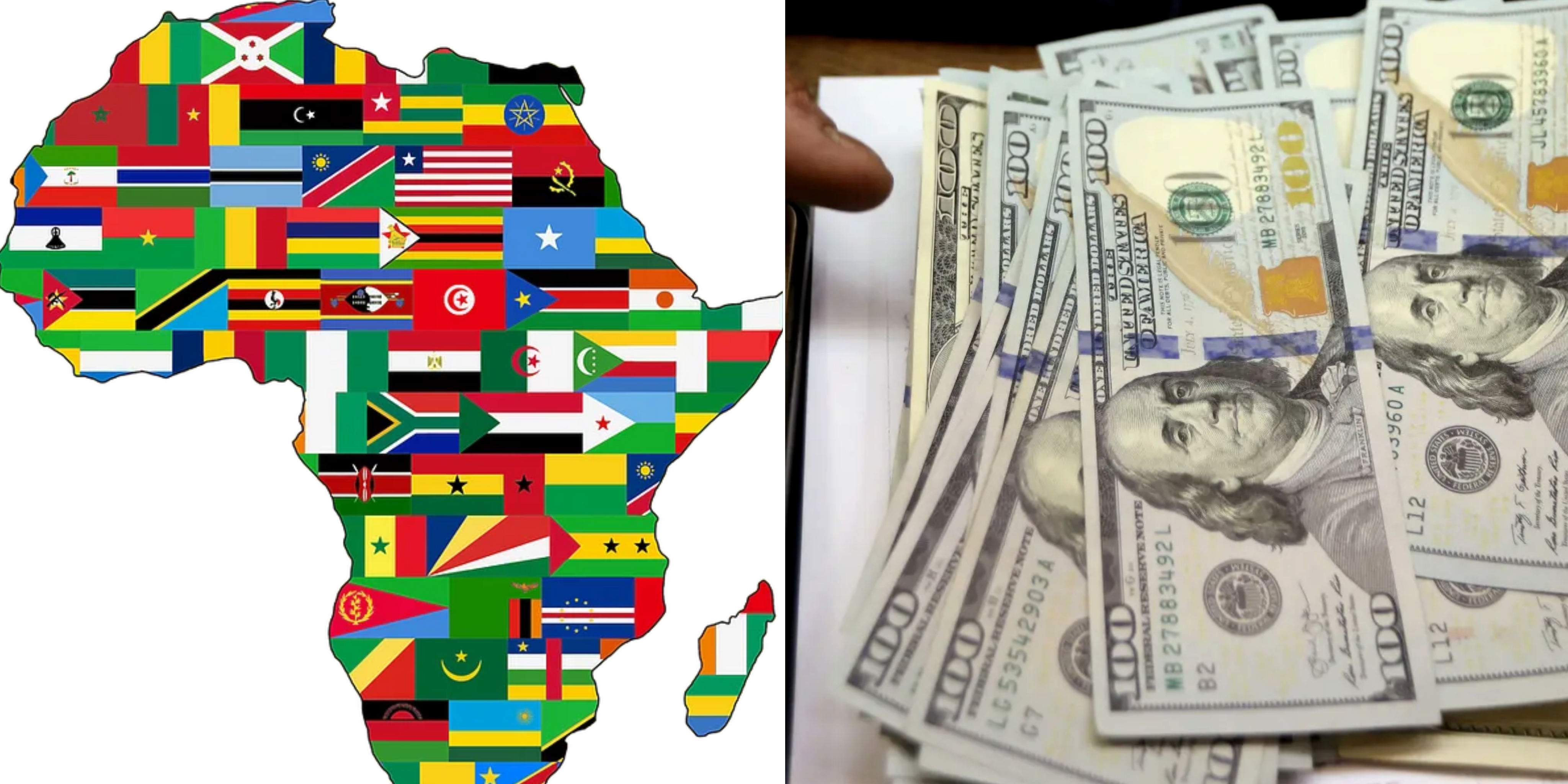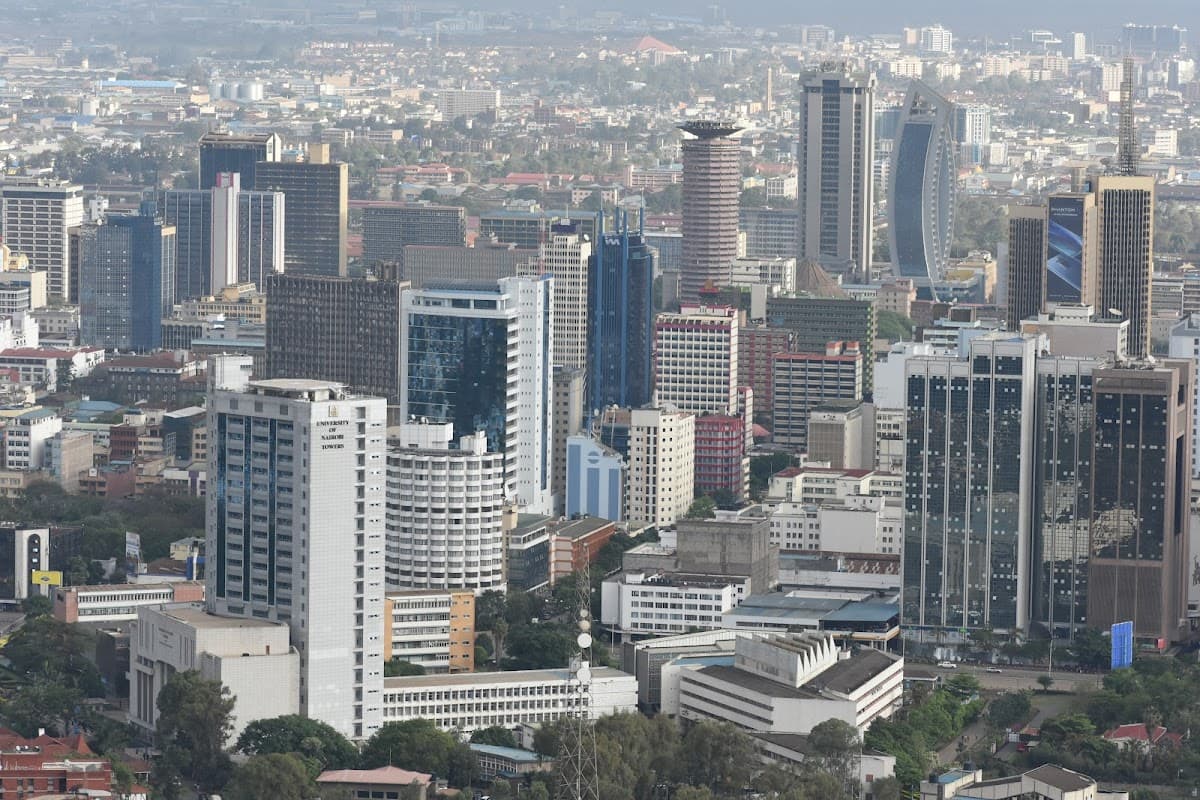The African continent, with it's rich resources, possesses tremendous economic potential but unfortunately, remains unconscious about timely development and enforcement of common policies to efficiently utilize it's potential.
Africa boasts a vast market that holds great promise for the future. However, in order to fully capitalize, the continent needs to establish a common currency that can effectively facilitate trade and economic integration.
Currency difficulties are one of the biggest obstacles to intra-African trade. Big contracts are often conducted in US dollars or other non-African hard currencies but there is a lack of these across the continent. At the same time, confidence in many African currencies is weak because of fluctuating exchange rates, including against the dollar.
A single African currency would make the continent more independent. With Trump's recent trade barries and tariffs, the time is 'nigh for the continent to free itself from the 'shackles of the west.
Even if building a new financial architecture is far from a simple task, Trump’s tariff tantrums are an opportunity in disguise: setting in motion a process that has long been discussed but never treated as urgent until now.
Many countries will suffer from the immediate impact of lost dollar revenues, but we should resist the trap of defending a deeply extractive system that has inflicted a crippling combination of high foreign debt, underinvestment and climate calamities upon countries in Africa.
These inequities are underpinned by profoundly hierarchical, neo-colonial financial structures that keep the dollar on top.
Through the International Monetary Fund and the World Bank, a series of Structural Adjustment Programs – economic reforms including privatisation and austerity measures – have been enforced upon African economies. These hinder economic diversification and result in a toxic blend of underdevelopment and overexploitation of natural resources to accumulate dollars.
In combination with a reliance on foreign debt, this has left many African countries in debt traps and highly dependent on the dollar. The tariff fallout, combined with declining oil prices, forced Libya to devalue its dinar currency and the Nigerian central bank to spend $198m to support its naira currency – demonstrating how the current international financial architecture leaves African countries overexposed to US policy changes.
As a result of the hierarchical and dollar-centric financial system, 32 African countries were forced to spend more on servicing foreign debts than on healthcare in 2023. A record $1.4trn was spent by developing countries on servicing foreign debt in 2023, diverting resources away from domestic developmental priorities.

Breaking free of the current international financial system, therefore, necessitates the construction of a new financial architecture in Africa and beyond, which bypasses the dollar’s clutches.
When the dollar-based international monetary and financial system was established at the Bretton Woods conference after the Second World War, the US was the largest economy in the world at 35% of global GDP. However, with the rapid development of formerly colonised countries, the US’s share of global GDP has since consistently fallen and it now finds itself in second place at 15%, after China at 19%, when measured at purchasing power parity.
With the economic heft of the US not what it once was, financial and trade disentanglement are far more achievable than they would have been a decade or two ago. The repeated weaponisation of the dollar, and of international payment systems like SWIFT through the use of sanctions, reinforces the case for building alternative payment infrastructures based on local currencies to increase economic and monetary sovereignty.
Many countries in the Global South are already accelerating a shift to local currency financing and trade arrangements to reduce their dollar dependency. This is the primary unifier of otherwise diverging interests among BRICS members, with China already conducting half its trade using the Chinese renminbi currency.
The Pan-African Payments and Settlement System (PAPSS) was launched in 2022 and is expanding across Africa, enabling cross-border transactions and trade in local currency. PAPSS saw its transaction volumes increase ninefold in 2025, with 16 countries currently participating in the platform. Not only does this boost intra-regional trade, but it also circumvents the costly US-dominated corresponding banking systems while reducing transaction costs and foreign exchange risks.
Payment systems are becoming increasingly important economic battlegrounds due to rising geopolitical uncertainty.
The likes of the EU, China, BRICS and many others are currently in the process of developing new payment platforms and new forms of money to act as alternatives to the dollar-centric traditional payment systems.
African governments and central banks could increase their economic sovereignty and financial resilience by incorporating Central Bank Digital Currencies (CBDCs) within new payment systems.
CBDCs are digital forms of cash, denominated in the local currency and issued by the central bank – unlike commercial bank money, which is created when private banks make loans.
CBDCs would therefore provide fiscal benefits in the form of seigniorage revenues, that is the profits derived from issuing money, while safeguarding public money and increasing financial inclusion. In comparison to traditional payment systems, CBDCs offer further benefits in terms of reduced cost while improving security and providing instant settlement.
The current moment offers an opportunity for African countries to further develop and expand payment systems such as PAPSS in order to reduce susceptibility to the growing belligerence of US economic policy.
Increasing the capabilities of Global South-led multilateral development banks, such as the New Development Bank - established by BRICS states - and African Development Bank, to provide financing in local currencies would further strengthen African currencies and provide more stable financing options than expensive dollar-denominated debt.
Together, local currency financing and increased regional trade using local currencies would significantly reduce reliance on the US and the dollar, opening up economic policy space to focus on domestic priorities rather than dollar accumulation.
According to a JULISHA.CO.KE Financial analyst, Africa requires effective and timely implementation of macroeconomic convergence criteria to lay the groundwork for the establishment of the African Central Bank, and immediately after that, a single African currency.
He opines that the continent needs a single African currency to, among others, increase intra-African trade flows, and this is key to strengthening the African economy and making it more resilient to endogenous and exogenous shocks.
Critics argue that the establishment of a common currency in Africa would face considerable challenges, such as differing levels of economic development, political differences, and potential loss of monetary independence. However, these challenges can be addressed through careful planning, gradual implementation, and effective governance structures. The lessons learned from the European Union's experience with the euro can provide valuable insights and guidance for Africa's path towards managing the common currency.

The adoption of a common currency necessitates the establishment of robust regional financial infrastructure. This infrastructure, including central banks, regulatory bodies, and payment systems, would facilitate efficient financial transactions, remittances, and electronic banking services across the continent. It would also foster the development of African financial markets, attracting foreign investors and boosting liquidity. A well-integrated financial infrastructure is indispensable for Africa's economic growth and would effectively support the continent's evolving needs.
A common currency provides Africa with a consolidated monetary policy framework, promoting macroeconomic stability. It grants the African Union enhanced control over the regulation and stabilization of currency value and interest rates. By adopting a unified currency, individual countries would no longer be subjected to currency devaluations or inflationary fluctuations, thus ensuring price stability. This stability cultivates investor confidence, attracts foreign direct investment, and fosters long-term economic growth across the continent.
A unified currency elevates Africa's financial power and global influence. By presenting a united economic front, Africa enhances its bargaining power in international trade negotiations, fostering more favorable trade agreements. Furthermore, a common currency paves the way for the creation of a sovereign wealth fund, enabling the continent to capitalize on its vast resources and strategically invest in long-term projects. This increased financial clout affords Africa the ability to shape global economic discourse and solidify its place as a major player on the global stage.







